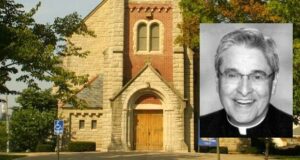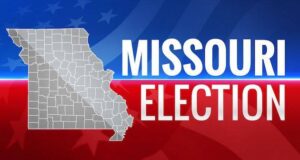Drunk driving organizations are pushing back at the Missouri legislature‘s efforts to phase out the use of checkpoints by public safety officers. Several parties disagree with the outcomes that eliminating the long-used method of finding drunk drivers could have.
For the second year in a row, lawmakers on the Missouri House Appropriations Committee voted to spend only $1 on sobriety checkpoints and allocate the rest of the $20 million the Missouri Department of Transportation (MoDOT) receives to other drunk driving prevention efforts.
KFVS TV in Southeast Missouri reports law enforcement agencies in many areas of the state have switched from setting up DUI checkpoints to using other enforcement methods to get impaired drivers off the roadways.
Sergeant Rick Schmidt with Cape Girardeau Police Department said they haven’t even thought about using sobriety checkpoints since the state legislature classified the method as ‘unconstitutional.’
“Just because you take one tool away from us doesn’t mean we are going to stop catching and arresting impaired drivers,” Schmidt said. “We are still going to keep that up.”
Meghan Carter, the state executive director of Mothers Against Drunk Driving, believes sobriety checkpoints have saved countless lives and eliminating them as an option will cause more drunk driving related deaths and injuries.
“We are almost nervous to get those numbers because taking away this funding, it’s a social experiment,” Carter said. “We are dealing with human lives here. Impaired driving deaths in the state of Missouri and throughout the nation have been on the increase over the past several years. Now is not the time to take away a tool from our law enforcement officials that has been known to save lives.”
The National Highway Traffic Safety Administration found that 10,497 people died in drunk driving crashes in 2016. That is one every 50 minutes, and 290,000 were also injured in drunk driving crashes in the same year.
While drivers can be arrested if they fail the BAC and other tests at sobriety checkpoints, Carter believes their main function is to be a highly visible deterrent.
“People who see there is going to be a sobriety checkpoint will make a better plan before they go out,” Carter said. “Knowing that law enforcement will be out in full force looking to arrest impaired drivers and to save lives in our communities.”
Sgt. Schmidt said every cop in America is a DUI enforcement officer and that looking for impaired driving is something they actively do 24 hours a day, seven days a week.
But on weekends and holidays, Schmidt said they’ve started using saturation patrols which he thinks it’s an effective method.
“By putting five or six extra cars for a saturation patrol I get it I can hit five or six streets that we wouldn’t of had with the checkpoint,” Schmidt said. “Because we can cover more territory, we can interact with more drivers, we can look at more cars. It gives us the advantage as opposed to being stationary at a checkpoint.”
Schmidt believes that checkpoints and more officers on the streets will likely catch a similar number of impaired drivers.
 Metro Voice News Celebrating Faith, Family & Community
Metro Voice News Celebrating Faith, Family & Community








